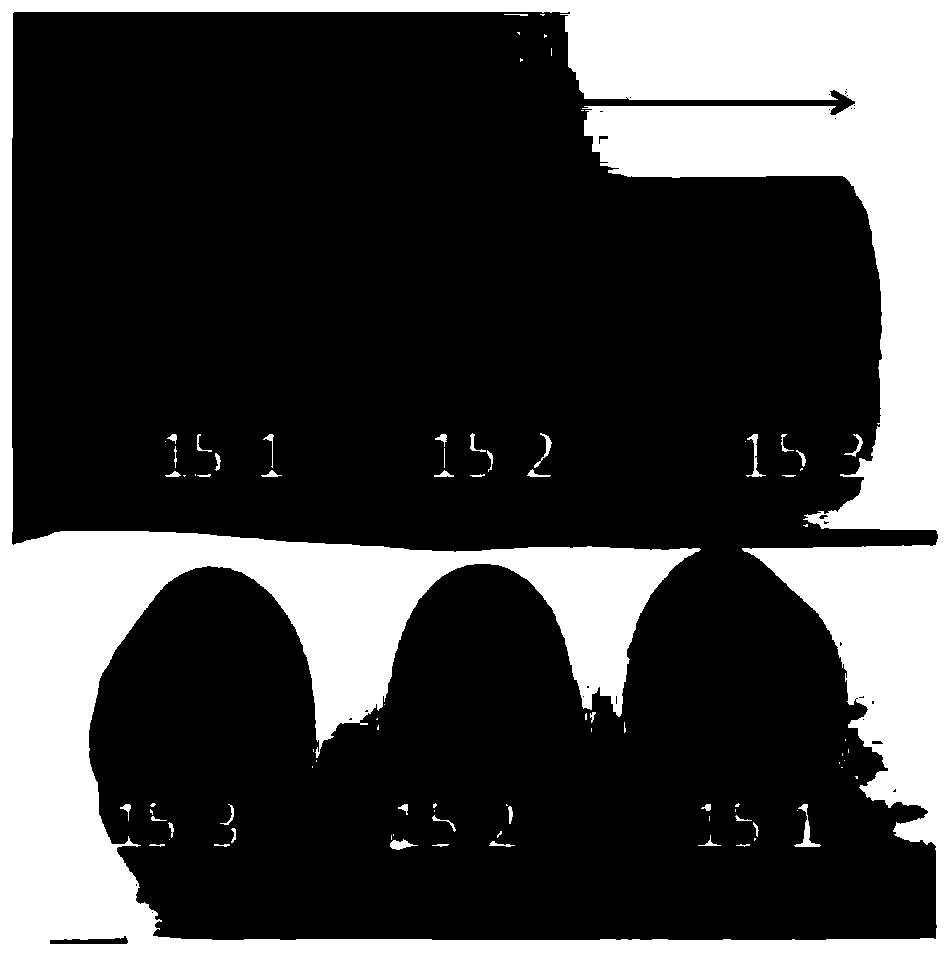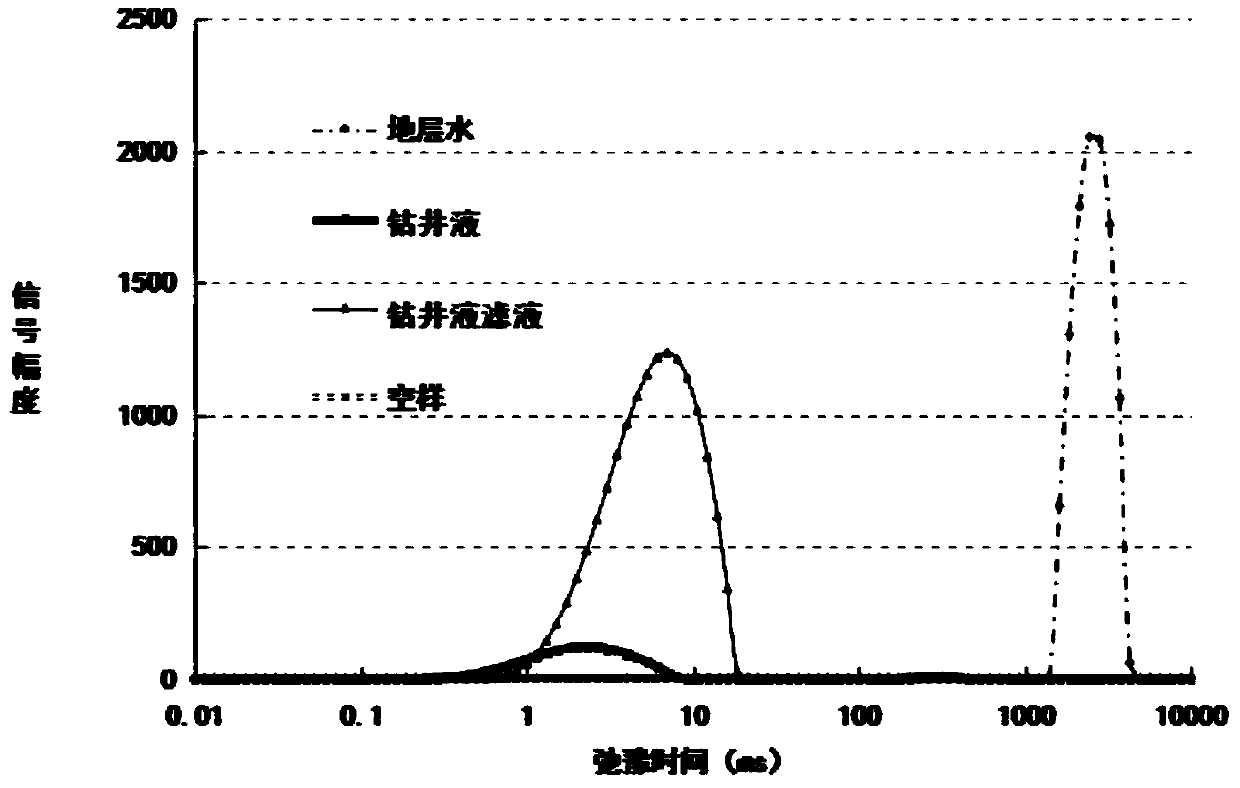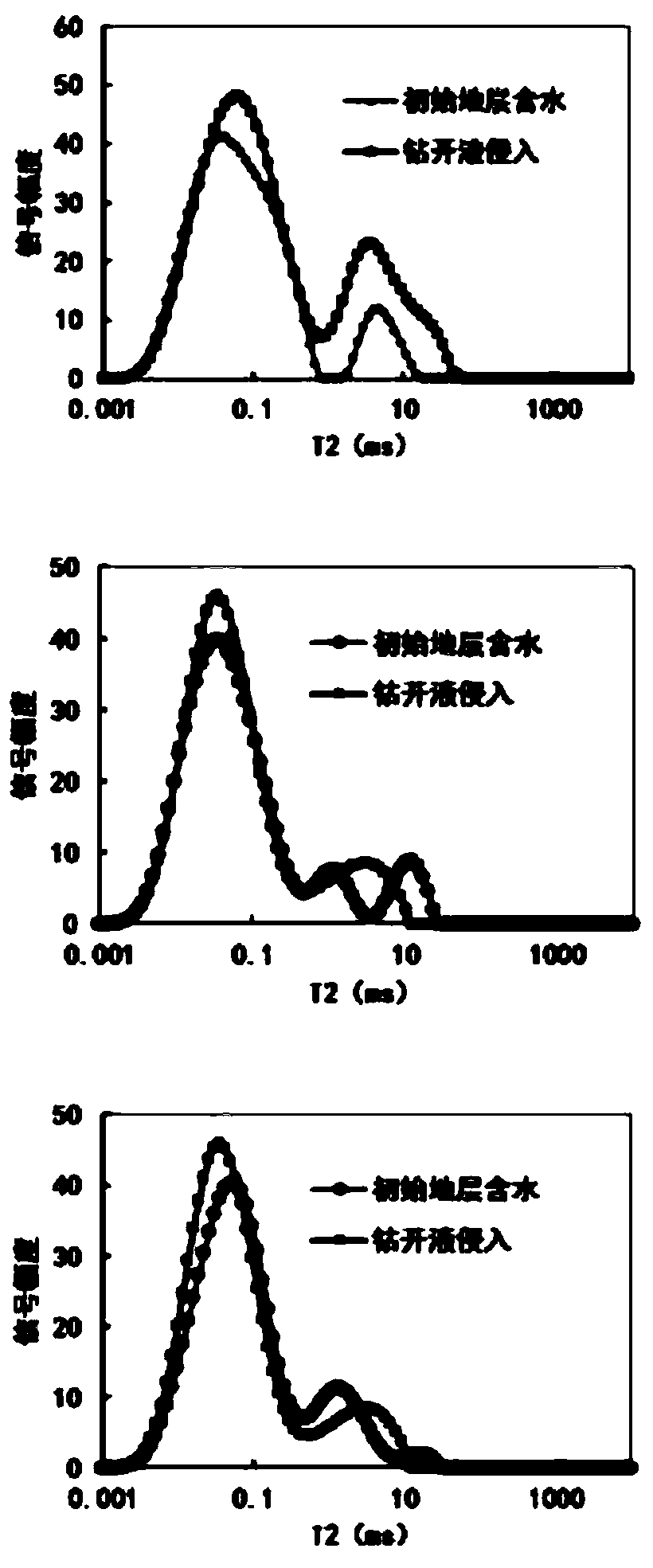An experimental method for evaluating drilling fluid damage in tight gas reservoirs
An experimental method and drilling fluid technology, applied in the direction of material inspection products, suspension and porous material analysis, instruments, etc., can solve problems such as impact, impact on test results, damage, etc.
- Summary
- Abstract
- Description
- Claims
- Application Information
AI Technical Summary
Problems solved by technology
Method used
Image
Examples
Embodiment
[0083] Taking the tight sandstone core of the Kelasu gas field as an example, according to the well test data, the original water saturation of the reservoir is S wi It is 25 to 35%. Six tight sandstone cores were selected to evaluate the damage degree of drilling fluid intrusion using the method of the invention. Here, the No. 15 core sample is used as the experimental object, and the experimental method for evaluating the damage of the tight gas reservoir drilling fluid provided by the present invention includes the following steps:
PUM
 Login to View More
Login to View More Abstract
Description
Claims
Application Information
 Login to View More
Login to View More - R&D
- Intellectual Property
- Life Sciences
- Materials
- Tech Scout
- Unparalleled Data Quality
- Higher Quality Content
- 60% Fewer Hallucinations
Browse by: Latest US Patents, China's latest patents, Technical Efficacy Thesaurus, Application Domain, Technology Topic, Popular Technical Reports.
© 2025 PatSnap. All rights reserved.Legal|Privacy policy|Modern Slavery Act Transparency Statement|Sitemap|About US| Contact US: help@patsnap.com



